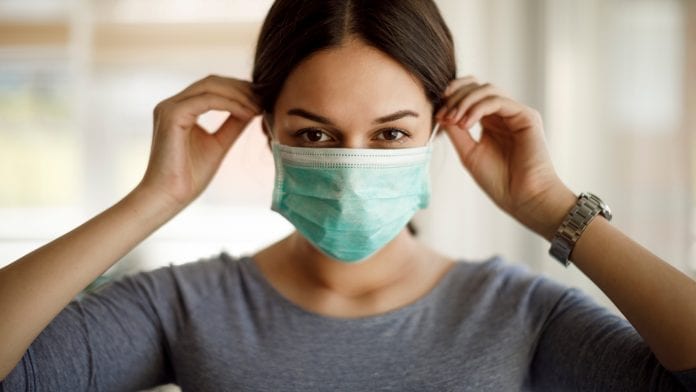
A new study has revealed that the use of face masks is vital for controlling COVID-19 spread.
Whether face masks are useful in controlling the spread of the novel COVID-19 virus has been debated, but now a new study has confirmed that they are vital in doing so.
The study, carried out by Texas A&M University, has found that not wearing a facemask can dramatically increase the risk of becoming infected by the virus.
The work was carried out by Renyi Zhang, Texas A&M Distinguished Professor of Atmospheric Sciences and the Harold J. Haynes Chair in the College of Geosciences, and colleagues from the University of California-San Diego and the California Institute of Technology, and published in PNAS (Proceedings of the National Academy of Sciences).
Person to person spread
As part of the study, the team investigated how easily the COVID-19 virus can pass from person to person. By looking at mitigation procedures in New York, Italy, and China the team discovered that using a face mask reduced the number of infections by 78,000 in Italy and 66,000 in New York during the period of 6 April – 9 May.
Zhang said: “Our results clearly show that airborne transmission via respiratory aerosols represents the dominant route for the spread of COVID-19. By analysing the pandemic trends without face-covering using the statistical method and by projecting the trend, we calculated that over 66,000 infections were prevented by using a face mask in little over a month in New York City. We conclude that wearing a face mask in public corresponds to the most effective means to prevent inter-human transmission.
“This inexpensive practice, in conjunction with social distancing and other procedures, is the most likely opportunity to stop the COVID-19 pandemic. Our work also highlights that sound science is essential in decision-making for the current and future public health pandemics.”
Co-author Mario Molina, Professor at the University of California San Diego, said: “Our study establishes very clearly that using a face mask is not only useful to prevent infected coughing droplets from reaching uninfected persons but is also crucial for these uninfected persons to avoid breathing the minute atmospheric particles (aerosols) that infected people emit when talking and that can remain in the atmosphere tens of minutes and can travel tens of feet.”
Face masks helped contain the outbreak in China
According to Zhang, people in China have worn face masks for years because of the bad air quality of the country.
Zhang said: “So people there are sort of used to this. Mandated face-coverings helped China in containing the COVID-19 outbreak. Our work suggests that the failure in containing the propagation of COVID-19 pandemic worldwide is largely attributed to the unrecognized importance of airborne virus transmission.
“Social-distancing and washing our hands must continue, but that’s not sufficient enough protection. Wearing a face mask as well as practising good hand hygiene and social distancing will greatly reduce the chances of anyone contracting the COVID-19 virus.”
He emphasised that the results of the study should send a clear message to people worldwide that wearing a face mask is critical in fighting the virus.










